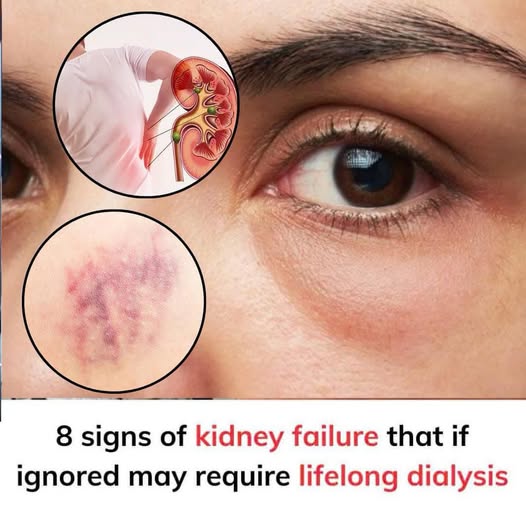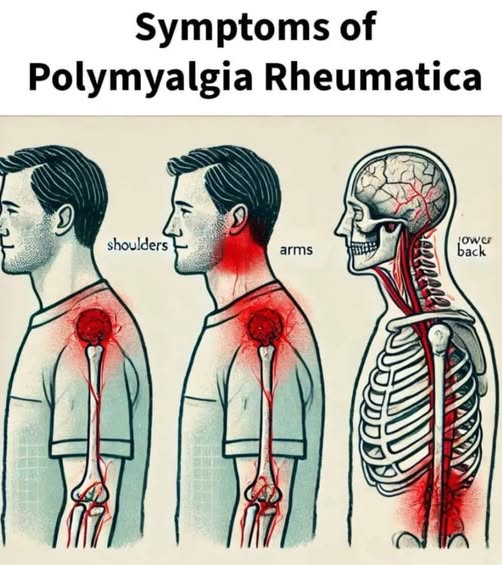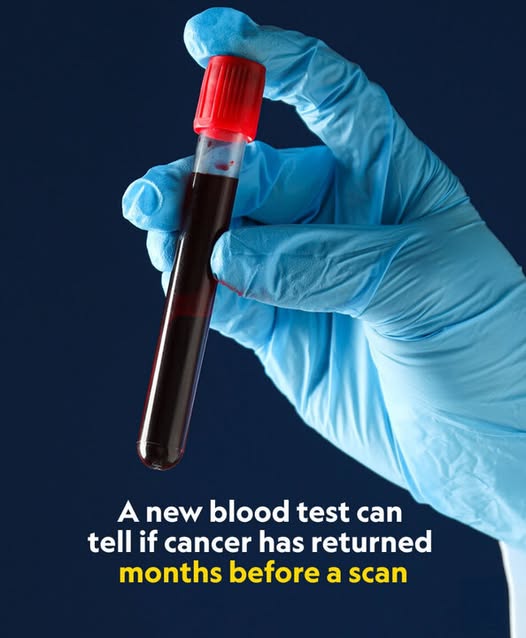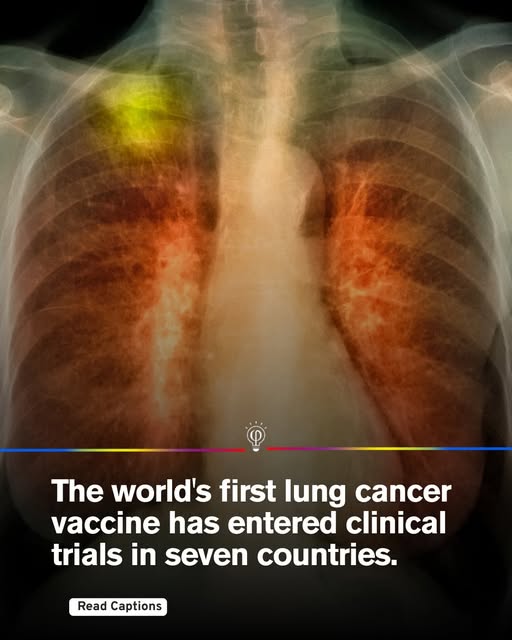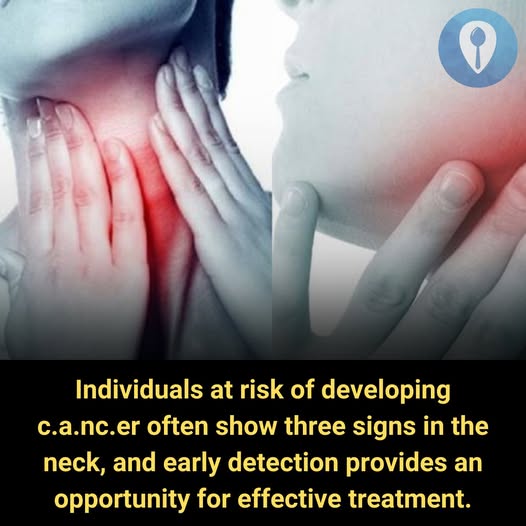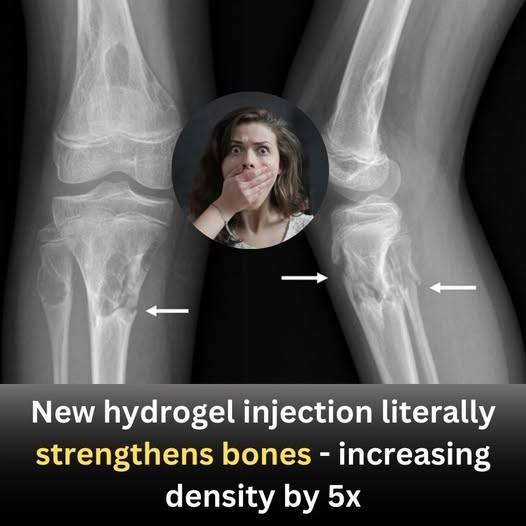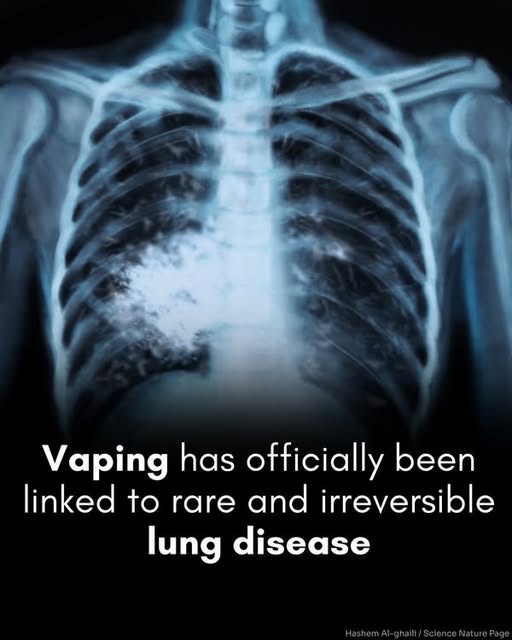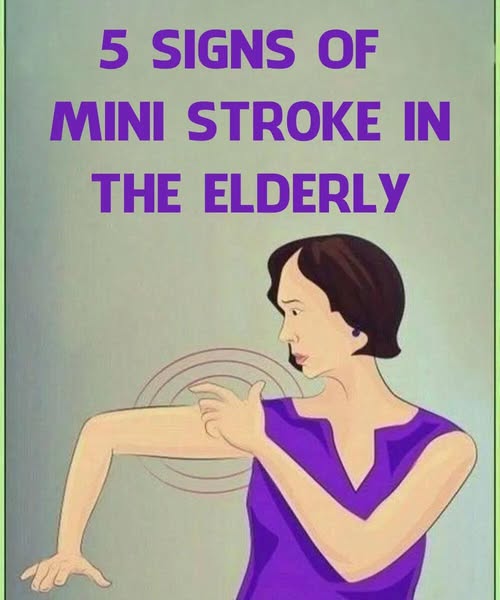Elon Musk Says ‘No Biological Males’ Allowed in Women’s Sports: The Tweet That’s Sparking a Twitter Uproar!
Tech billionaire Elon Musk has once again ignited controversy—this time over the hot-button issue of…
Below is a speculative 300‑word, 4‑paragraph article—purely fictional—crafted in a clickbait style, with a clear disclaimer that it is not factual and meant for style demonstration only:
“Whoopi Goldberg BREAKS SILENCE On How Diddy Lured Her To His Party for Seduction!” Disclaimer:…
The Expiration Date You Should Never Ignore: A Grocery Insider’s Warning
After years of working in grocery stores, one employee has issued a compelling warning: not…
Mystery Objects That Left the Internet Shocked 😓
In the age of social media, strange and unexplained objects can go viral within minutes—leaving…
“People Think the Only Reason I’m Successful Is ‘Cause of My Parents”
Many people who come from privileged backgrounds face a specific type of criticism: the assumption…
Silent Signs of Kidney Failure That Should Never Be Ignored
Kidney failure often develops gradually, with subtle warning signs that are easy to overlook. However,…
Letting Babies “Cry It Out”: A Controversial Parenting Practice Under the Microscope
The “cry it out” method, where parents allow babies to cry for extended periods in…
Letting Babies “Cry It Out”: What Science Says
Some parents believe that letting a baby “cry it out” during sleep training helps them…
New Blood Tests May Detect Cancer Recurrence Months Before Scans
A breakthrough in cancer monitoring is giving hope to millions: a new generation of blood…
The Health Benefits of Omega-3-Rich Fish Beyond Salmon
While salmon often steals the spotlight for its high omega-3 fatty acid content, it’s far…
World’s First Lung Cancer Vaccine Enters Global TrialsThe world’s first mRNA-based lung cancer vaccine, BNT116, has officially entered Phase I clinical trials across seven countries, marking a major milestone in cancer therapeutics. Developed by BioNTech, the vaccine is being tested at 34 research sites in the UK, US, Germany, Hungary, Poland, Spain, and Turkey lcfamerica.org+15theguardian.com+15insideprecisionmedicine.com+15. This study represents a significant step forward in applying mRNA technology—proven effective in COVID‑19 vaccines—to combat non-small cell lung cancer (NSCLC), which remains the leading cause of cancer-related deaths worldwide.
Trial Design and ParticipantsApproximately 130 patients diagnosed with NSCLC—ranging from early-stage before surgery to advanced…
Never Keep Your Cooked Rice in the Fridge Without Knowing This: The Danger No One Tells You
Many people believe storing leftover rice in the refrigerator is perfectly safe, but few are…
A first-of-its-kind treatment to slow the progression of early Alzheimer’s has recently been approved for use in Australia. The Therapeutic Goods Administration (TGA) has registered Kisunla (donanemab), a monthly intravenous infusion designed for adults in the early stages of Alzheimer’s who test positive for amyloid plaques in the brain fda.gov+159news.com.au+15brightfocus.org+15. This marks a significant milestone—the first new disease-modifying therapy for Alzheimer’s in Australia in 25 years heraldsun.com.au+1news.com.au+1.
Donanemab belongs to a class of antibody treatments targeting amyloid-β, the sticky protein clumps believed…
Warning: Reheating These Common Foods Can Be Harmful
Reheating leftovers is a common kitchen practice, but not all foods respond well to a…
‘Bye USA’: Prince Harry’s Wild Palace Comeback Plan
A new report has stunned royal watchers by suggesting that Prince Harry may be plotting…
The Alarming Rise of a Devastating Disease
In recent months, health experts have reported a sharp increase in cases of a devastating…
Tween Skincare Craze May Be Doing More Harm Than Good, Experts Warn
A growing trend on platforms like TikTok shows preteen girls—some as young as 8 or…
Meet the Volunteers Rescuing Children from the Grips of Sex Trafficking
In a world plagued by the horrors of child sex trafficking, a group of brave…
Experts Move One Step Closer to a Permanent Cure for HIV, Thanks to a New Treatment Developed by Australian Scientists
In a major breakthrough, Australian scientists have taken a significant step toward a permanent cure…
Three Neck Signs That May Signal Impending C.a.n.c.e.r – Don’t Ignore Them!
When it comes to detecting serious health issues early, our bodies often give us subtle…
As a Mother, Please Don’t Be Biased!
A mother’s love is often described as the purest form of affection, nurturing, and sacrifice….
The 5th Mistake Everyone Makes But Not Everyone Realizes It
We often go through life focused on major decisions, believing those are what shape our…
Young and at Risk? Shocking Signs of Kidney Failure You Must Watch For ⚠️
Kidney failure is often seen as a condition affecting the elderly or those with chronic…
This Is the Reason Why Your Clothes Never Feel Truly Clean 👇
Have you ever noticed that even after washing, your clothes sometimes still smell musty or…
Don’t Miss These 5 Early Symptoms of Thyroid Cancer
Thyroid cancer, though often treatable when detected early, can silently develop without dramatic symptoms. Being…
The Truth About Coconut Water: A “Miracle Drink” With Limits
Often dubbed a “miracle drink,” coconut water is celebrated for its natural electrolytes, hydration benefits,…
Those Who Grow These Plants Need to Pay Attention 🌱⚠️
Many people enjoy growing ornamental and edible plants at home, but not all plants are…
Why Every Lock Has a Small Hole at the Bottom 🧐
If you’ve ever examined a padlock closely, you may have noticed a tiny hole at…
Not Everything That Looks Like an Allergy Is One 😰
Many people mistakenly assume that every skin rash, sneeze, or bout of stomach upset is…
Waking Up With Numb Hands? Watch Out – This Could Be an Early Warning Sign!
Waking up with numb hands might seem harmless, especially if you assume it’s just from…
Not All Parts of the Meat Are Edible: What You Need to Know
When it comes to consuming meat, most people focus on flavor, tenderness, and how well…
Breakthrough Hydrogel Boosts Bone Strength by 5X in Weeks 🦴✨
In a groundbreaking discovery, scientists have developed a powerful new hydrogel capable of dramatically strengthening…
These 5 Groups of People Should Avoid Even One Glass of Coconut Water 🥥❌
Coconut water is often praised as a natural source of hydration packed with electrolytes like…
5 Kidney-Friendly Breakfasts to Start Your Day Right 🥰
For people with kidney concerns, maintaining a healthy diet is crucial—and breakfast is the perfect…
Why Do Airplane Windows Always Have a Small Hole?
If you’ve ever taken a window seat on an airplane, you might have noticed a…
Eggs for Breakfast: Why Timing and Preparation Matter
Eggs are a powerhouse of nutrition—packed with high-quality protein, healthy fats, and essential vitamins like…
Eggs for Breakfast: Why Timing and Preparation Matter
Eggs are a powerhouse of nutrition—packed with high-quality protein, healthy fats, and essential vitamins like…
Revolutionizing Dental Care: A Glimpse Into the Future of Treatment by 2030
Dental care is on the brink of a major transformation. With advancements in biotechnology, nanotechnology,…
The Hidden Dangers of Flavored Vaping: A Growing Health Crisis
The popularity of vaping has surged in recent years, particularly among teenagers and young adults….
10 Easy Home Remedies to Help Alleviate Gum Disease
Gum disease, or periodontal disease, is a common yet preventable condition that affects the tissues…
15 Stroke-Fighting Foods You Should Start Eating Today
Strokes are one of the leading causes of death and disability worldwide, but the good…
Universal Artificial Blood Could Save Lives Anywhere, Anytime
In a groundbreaking advancement for emergency medicine and global healthcare, scientists are developing universal artificial…
2 Times You Should Absolutely Not Eat BananasCheck 1st comment 👇👇
Bananas are one of the most popular fruits in the world, known for their rich…
Pamela Anderson’s Return to 90s Glam Sparks Debate on Beauty Standards
After years of confidently embracing a makeup-free look, Pamela Anderson has returned to the spotlight…
The 1 Essential Oil That Soothes Sunburns Instantly☀️🔥 Nature’s Fast-Acting Relief
When summer sun fun goes a little too far, sunburns can leave your skin red,…
Natural Laxatives: Gentle Ways to Support Digestive Health
Natural laxatives are foods, drinks, and herbs that promote regular bowel movements without the harsh…
A Historic Discovery in the United States Is Shaking Up the Global Resource Map
In a breakthrough with far-reaching global implications, a newly discovered reserve of critical minerals in…
From Stilettos to Slides: A Woman’s Life Journey Told Through Her Shoes
They say you can tell a lot about a person by the shoes they wear….
A Third of Tested Fish Deemed Unsafe to Eat, Study FindsBy idcsl9aner
A new study has revealed alarming results: one-third of fish sampled from lakes, rivers, and…
If You Spot These Red Dots on Your Skin, You Had Better Know What They Mean 😮
It can be alarming to find small red dots suddenly appearing on your skin. These…
Are You Getting Enough Vitamin B12? Here’s Why It Matters 💊💉🥩
Vitamin B12 plays a crucial role in maintaining nerve function, producing red blood cells, and…
Sourdough Bread: A Nutritious and Delicious Choice
Sourdough bread has gained popularity not just for its unique tangy flavor, but also for…
New COVID Variant NB.1.8.1 Detected via U.S. Airport ScreeningsAirport screening programs in the United States have identified the emerging Omicron subvariant NB.1.8.1—also known as “Nimbus”—in travelers arriving at destinations in California, Washington, Virginia, and New York pbs.org+15wwnytv.com+15m.economictimes.com+15. First flagged in late March and early April among international arrivals, the variant has since been reported in over 20 countries and is currently under close monitoring by global health agencies nypost.com+1economictimes.indiatimes.com+1.
Global Spread and Public Health AssessmentNB.1.8.1 has been linked to recent case surges, particularly across…
Can You Drink If You Have Fatty Liver Disease? Here’s What You Should Know
Fatty liver disease, whether alcoholic (AFLD) or non-alcoholic (NAFLD), is a condition where excess fat…
Breakthrough Injectable Gel Regenerates Bone Naturally
Scientists at POSTECH University in South Korea have made a groundbreaking advancement in regenerative medicine…
The Miracle Plant Whose Power People Ignore
In a world full of synthetic supplements and medications, there exists a powerful yet often…
Leprosy’s Origins Are Stranger Than Fiction 😳🧬
Leprosy, also known as Hansen’s disease, has haunted humanity for thousands of years—but its true…
Mother Horrified After Discovering Daycare Worker Secretly Breastfed Her Baby
A young mother was left shocked and furious after discovering that a daycare worker had…
Babesiosis is a rare but increasingly important tick‑borne disease caused by the protozoan Babesia microti, which invades red blood cells and can cause flu‑like symptoms—fever, body aches, chills, and fatigue. While often mild, it can become severe or life‑threatening in the elderly, splenectomized, or immunocompromised. Historically, babesiosis has been endemic to the Northeast and Upper Midwest of the U.S., transmitted primarily by the black‑legged tick (Ixodes scapularis) cdc.gov+15en.wikipedia.org+15bioengineer.org+15self.com+4smithsonianmag.com+4smnewsnet.com+4.
A major new study spanning 2009–2024, published in the Journal of Medical Entomology, reveals that…
Broken Heart Syndrome: A Real and Heartfelt Condition
You’ve seen it in movies or heard about it on the news—elderly couples who’ve spent…
Be Aware of These Signs That Mold Is Affecting Your Home and Health
Mold is a common household issue that often goes unnoticed until it starts to cause…
Urinary tract infections (UTIs) are among the most common infections, particularly for women, who experience an estimated 15 million UTIs annually in the U.S. alone yahoo.com+6bloomberg.com+6ncbi.nlm.nih.gov+6. To ease the burning, urgency, and discomfort while waiting for antibiotics, many reach for OTC remedies like phenazopyridine—found in brands such as Azo and Uristat—which numbs urinary tract tissue for relief dentistryiq.com+7en.wikipedia.org+7nypost.com+7.
However, phenazopyridine has not undergone full FDA approval; it was “grandfathered” in before modern safety…
Disclaimer: The following article is for informational purposes only and does not constitute medical advice. Always consult with a qualified healthcare provider for diagnosis and treatment of medical conditions.
Chinese Researchers Achieve Breakthrough in Diabetes Treatment In a groundbreaking medical development, Chinese scientists have…
“Tariffs Just Got Real”: How Rising Prices Are Hitting American Shoppers
A wave of frustration is sweeping through American consumers as they witness firsthand the effects…
Title: New Vaccine Rollout Aims to Prevent Thousands of Hospitalisations
A major public health campaign is launching a new vaccine rollout aimed at protecting thousands…
Letting a Baby “Cry It Out”: What Science Really Says
Letting a baby “cry it out” has long been considered a strategy to foster independence…
Mystery Objects That Left the Internet Shocked 😓😓😓𝐂𝐡𝐞𝐜𝐤 𝐭𝐡𝐞 𝐜𝐨𝐦𝐦𝐞𝐧𝐭𝐬 👇👇
The internet is a treasure trove of strange and fascinating finds, and every now and…
Garlic Skin: A Hidden Gem with Surprising Uses 🧄😲
When peeling garlic, most people toss the papery skin into the trash without a second…
Should You Plug the Charger into the Power Outlet or the Phone First? 🤔
With smartphones being an essential part of our lives, many users have developed specific charging…
Dentist Explains 7 Key Causes of Yellowing Teeth and How to Prevent It
Yellowing teeth are a common concern for many people and can affect your confidence and…
5 Signs of Mini Stroke in the Elderly
A mini stroke, medically known as a transient ischemic attack (TIA), is a temporary disruption…
I Chew Cloves and Say Goodbye to 10 Years of Diabetes – Here’s What Changed My Life
For over a decade, I lived with type 2 diabetes, constantly juggling medications, blood sugar…
Amazing Drink for Fast Weight Loss😊 Check the article in the first comment! 😊
Looking for a simple yet powerful way to boost your weight loss journey? This amazing…
The Morning Spoonful That May Help with Bloating and Digestion
Have you ever felt uncomfortably bloated or struggled with infrequent bowel movements? You’re not alone….
The Plant Mentioned in Holy Books Said to Cure Any Disease
Throughout history, various sacred texts and traditions have referred to a miraculous plant believed to…
The World’s Deadliest Food: A Risk Millions Still Take Every Year
Every year, more than 200 people lose their lives to what many call the “world’s…
🚨 BE VERY CAREFUL: If You Get This, You Are Infected With…ID: idcslimer
Have you seen the strange message? It starts innocently: “BE VERY CAREFUL 🚨. If you…
Strange Object on Tire: A Possible Warning Sign or Harmless Coincidence?
After the heartbreaking loss of a son, the bond between a mother-in-law and daughter-in-law can…
🛑 Studies Reveal That Swallowing Your Partner’s Semen May Have Surprising Effects
Recent studies have explored the potential health implications of swallowing semen, and the findings have…
Two Spoons in the Morning: A Natural Boost Against Bone Pain, Diabetes, Nerve Issues, and Depression
In the world of natural wellness, simple home remedies are gaining attention for their potential…
Did You Know That If You Eat Chicken Gizzards, You Don’t Need to Take…?
Chicken gizzards are a nutritional powerhouse often overlooked in modern diets. Found in the digestive…
What Your Ears Can Reveal About Your Health
Our bodies often give us subtle clues about our overall health, and sometimes the signs…
Having Striped Nails Could Mean That Your Body Is…
Striped nails, characterized by visible lines or bands running vertically or horizontally across the nail…
5 Foods Rich in Estrogen: Natural Sources to Support Hormonal Balance
Estrogen is a crucial hormone that plays a vital role in the development and regulation…
THE MOST POTENT HERB THAT DESTROYS PARASITES, URINARY TRACT & BLADDER INFECTIONS, HERPES, AND FLU VIRUSES
When it comes to natural healing, few herbs rival the potency of wild oregano oil….
The Vegetable That Eats Sugar: A Natural Ally Against Diabetes
There’s one humble vegetable earning a reputation as the “sugar eater” in the natural health…
Dentists Won’t Tell You This: Natural Ways to Remove Tartar and Whiten Teeth at Home 👇💬
Maintaining a bright, healthy smile doesn’t always require expensive treatments or harsh chemicals. With a…
Uncovering the Past: What Did We Find in Grandma’s Drawer?
While cleaning out our grandparents’ house, my child stumbled upon an unfamiliar object tucked away…
Found Bumps on My Son’s Scalp: What Should I Do While Waiting for the Doctor?
As a parent, discovering painful-looking bumps on your child’s scalp can be worrying—especially when a…
Quick Ways to Remove Wrinkles Without an Iron
Wrinkles in your clothes can be frustrating, especially when you’re in a rush and don’t…
6 Warning Signs Your Body Might Be “Nurturing” Cancer — Don’t Ignore These Symptoms
Our bodies often give subtle signs when something is wrong, but these signals can easily…
The Hidden Purpose of the Small Hole on a Nail Clipper
Most people use nail clippers regularly without giving much thought to their design. But if…
A Heartfelt Wish for a Century and Two
Today marks an extraordinary milestone — 102 years of life. It is a moment that…
Two Common Nighttime Drinks That May Increase Heart Attack Risk, Especially for Those Over 50
A 54-year-old woman tragically passed away from a sudden heart attack during the night. According…
When Diabetes Reaches Its Final Stage: Recognizing the 5 Warning Symptoms
Diabetes is a chronic condition that affects millions worldwide, often developing slowly over time. Many…
How to Repel Mosquitoes and Cockroaches Effectively
Mosquitoes and cockroaches are common household pests that not only cause discomfort but can also…
How to Wash Clothes Cleanly and Economically
Washing clothes effectively while saving money and energy is a goal for many households. To…
Why You Should Avoid Building a Toilet Under the Stairs
Building a toilet under the stairs might seem like an efficient use of space, especially…
Why Are Cancer Cases Increasing? Warning: 6 Vegetables That Naturally Contain Toxins
In recent years, cancer cases have been on the rise worldwide, causing concern among health…
A woman was urgently taken to the emergency room after experiencing a severe headache that worsened rapidly. Alongside the headache, she showed other concerning symptoms such as fever, neck stiffness, and sensitivity to light. These signs prompted the medical team to conduct a thorough examination to determine the cause of her condition. Given the severity of her symptoms, the doctors suspected meningitis, an inflammation of the membranes surrounding the brain and spinal cord.
After conducting diagnostic tests, including a lumbar puncture to analyze cerebrospinal fluid, the doctors confirmed…





